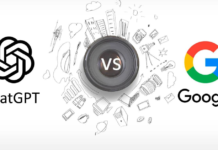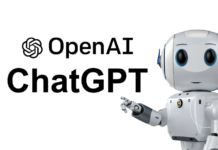
Currently, the world is facing over 10,000 diseases but just about 500 can be treated smartly at present. Some diseases are survivable, whereas some could be lethal, endangering people’s lives. Almost every disease is undergoing a process where scientists or clinical sides are trying to discover medicines, vaccines or an artificial intelligence that could either cure the disease or diagnose it before the condition of a sufferer gets worsens. Some drugs are even ready or in final stages, awaiting approval from relevant authorities to be marketed for use. However, according to the World Health Organization (WHO), such a regulatory process may take some time, approximately 5-10 years. Many of the fatal diseases, include cancer, heart problems and more importantly Alzheimer’s disease. Alzheimer’s disease is a deleterious disease, with a treatment cursory to mankind.
The journey Alzheimer’s disease embarks you on is slow, therefore, declared a non-invasive disease. Its symptoms, include: memory loss, forgetting people, not being able to distinguish two things, and forgetting how to write. That is one of a reason, a speech test is conducted. Artificial Intelligence (AI) plays a significant role in treating patients diagnosed with this deadly disease. The eventual onset of Alzheimer in healthy people with an accuracy of 0.7 and an AUC of 0.74 (area under the curve) is needed in the speech test, for it to make a prediction.
The acumen power is given to the machines and robots to act as intelligent as human beings. Empowering machines or activating their Artificial Intelligence enables them to take over the responsibilities of the human beings. A great example of AI is the software installed in modern cellular phones, including Siri, Alexa, Google, Cortana, etc.
Alzheimer’s disease is said to be easily treated if detected in time or during initial stage of the disease. Although a technology exists there to treat Alzheimer’s disease, the problem remains that it comes to show the symptoms when condition appears to be worsened. Scientists are endeavouring to develop a machine that could detect Alzheimer’s disease timely. In case of their success, there would be more and improved chances to treat the people at earlier stages.
Development of AI to Detect Alzheimer’s
Algorithm, a new Artificial Intelligence (AI) is in preparatory phase 4, having the high chance success. Being developed by researchers at the Boston University School of Medicine, it uses Brain MRI (Magnetic Resonance Imaging) testing. It measures all the data, including age and gender, comparing the cognitive impairment, which shows the doctor or scientist the risk of Alzheimer’s disease.
The worst condition of Alzheimer’s disease is characterized by increasing dementia that causes neurodegenerative disorder. If a type of artificial intelligence becomes a success to test the Dementia at early stage of the disease, it could help ensure the treatment of Alzheimer’s disease too.
According to corresponding author Vijaya Kolachalama, Ph.D., Assistant Professor of Medicine at Boston University School of Medicine (BUSM), “If we had accurate tools to predict the risk of Alzheimer’s disease (such as the one we developed that is readily available and which can use routinely available data such as a brain MRI scan), they would have the potential to assist clinical practice, especially in memory clinics”. Not only can we accurately predict the risk of Alzheimer’s disease, but this algorithm can generate interpretable and intuitive visualizations of individual Alzheimer’s disease risk en-route to accurate diagnosis”.
There are many other laboratories and places where the phases of tests of Artificial Intelligence that could test Alzheimer’s disease are taking place. Although it will take longer and will surely be slow, the results are promising.
Statistics
As estimated, approximately 44 million people are affected by Alzheimer’s disease or Dementia. This has also come at number 3 in the United States of America (USA), as the disease-causing death, after the heart and cancer diseases. In the US currently estimated 5.5 to 5.8 million people are diagnosed with this mortal disease, two-third of them are women. But it is said that most of the people suffering from the disease are above the age limit of 65.
Now Alzheimer’s disease seems to be diagnosed in a lot more people than in any year before. Why are cases increasing yearly? Population is growing rapidly causing more people to catch it, as well as people living longer is another reason of the growing number of patients suffering from Alzheimer’s disease.
Hope due to Advancements in Technology
Many people say that another reason for Artificial Intelligence not being used earlier is because people are also engaged in finding treatment for other diseases such as Cancer, Leukaemia etc. And then, global epidemics and pandemics such as the Ebola outbreak, Coronavirus (Covid-19, SarsCov19) overwhelm the world every decade causing scientists to concentrate on such issues more. Another reason might be that needs of other people are being addressed so not many people are donating, helping, or paying focus to this, driving to a delay in the arrival of the Artificial Intelligence.
Privilege to Treatment
People in the US and in other developed countries are fortunate enough because their governments can pay their bills or give free medical services to their needy people. But citizens in African countries, where poverty is at its peak with lack of resources, the governments do not have enough to pay for free medical services. Resultantly, underprivileged patients diagnosed with Alzheimer’s disease or any other lethal diseases remain at higher risk with inappropriate or no treatment.
What are the Drugs that Treat Alzheimer’s Patients Called?
There are many drugs used to treat Alzheimer’s disease. Some of the prominent ones include, Aricept (donepezil), Exelon (rivastigmine), Namenda (memantine), Namzaric (memantine and donepezil), Razadyne (galantamine). But it is mostly treated through the help of weekly or monthly MRIs, CT scans, and other types of modern technologies that use Artificial Intelligence.
Summing-up, we come up with the fact that Artificial Intelligence has a tremendous, positive impact on the early detection and treatment of this fatal disease. Scientists and laboratory workers still needs to invent a form of Artificial Intelligence (AI) that could tell about a person’s Alzheimer’s disease report earlier before they start showing symptoms or get into a critical situation which can save their lives. We could also donate on websites that could help the people and spread awareness about Alzheimer’s disease.









